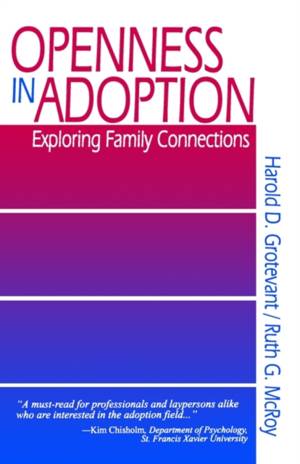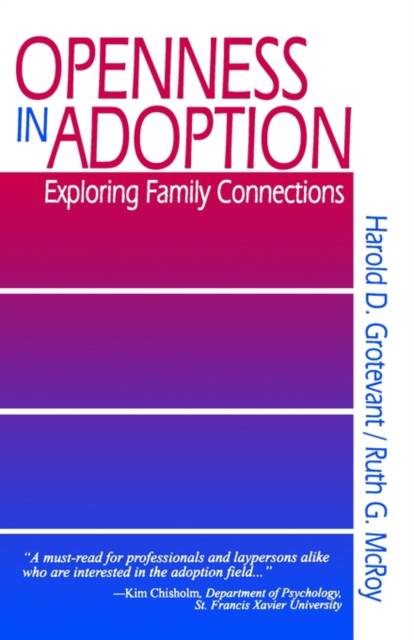
- Afhalen na 1 uur in een winkel met voorraad
- Gratis thuislevering in België vanaf € 30
- Ruim aanbod met 7 miljoen producten
- Afhalen na 1 uur in een winkel met voorraad
- Gratis thuislevering in België vanaf € 30
- Ruim aanbod met 7 miljoen producten
Zoeken
€ 238,45
+ 476 punten
Omschrijving
Since the mid-1970s, adoption practices in the United States have changed dramatically, and the confidentiality maintained in the past is no longer the norm. The trend is toward openness in adoption in which either mediated (through an adoption agency) or direct contact occurs between the adoptive family and birth parent(s). Some adoption professionals argue that openness is harmful and experimental while others argue that the secrecy of confidential adoptions has been harmful to all parties involved. WhoÆs right? In Openness in Adoption, this question is addressed via a nationwide study of 720 individuals (190 adoptive fathers, 190 adoptive mothers, 171 adopted children, and 169 birthmothers) that was conducted over a five-year period. The book begins by presenting the issues and debates surrounding open adoptions and then examines them from the perspective of the adopted children, adoptive parents, and birth mothers. The volume concludes with implications for adoption practice, public policy, and future research. A groundbreaking volume, Openness in Adoption provides a wealth of information to professionals and practitioners in the fields of family studies, sociology, developmental psychology, social work, clinical psychology, and social psychology.
Specificaties
Betrokkenen
- Auteur(s):
- Uitgeverij:
Inhoud
- Aantal bladzijden:
- 239
- Taal:
- Engels
- Reeks:
Eigenschappen
- Productcode (EAN):
- 9780803957794
- Verschijningsdatum:
- 24/06/1998
- Uitvoering:
- Paperback
- Formaat:
- Trade paperback (VS)
- Afmetingen:
- 119 mm x 211 mm
- Gewicht:
- 312 g

Alleen bij Standaard Boekhandel
+ 476 punten op je klantenkaart van Standaard Boekhandel
Beoordelingen
We publiceren alleen reviews die voldoen aan de voorwaarden voor reviews. Bekijk onze voorwaarden voor reviews.








